By Dashnor Kaloçi
Part twenty-six
Memorie.al / Exactly 43 years ago, on the morning of December 18, 1981, the Albanian Prime Minister Mehmet Shehu, who had held that position since 1953, was found dead in his bedroom (according to the official version, from a bullet from a pistol) in the villa where he lived with his family, at the entrance of the “Block” of the high leadership of the Albanian Party of Labor, just a few meters from the building of the Central Committee of the Albanian Party of Labor and also from Enver Hoxha’s villa. Although more than four decades have passed since that day, considered one of the most serious and notorious events of that regime, there is still no clear and accurate version regarding what happened to the former Albanian Prime Minister Mehmet Shehu on the night leading to December 18, 1981! However, even after the 1990s, dozens of testimonies and archival documents have been made public regarding that event, “the murder or suicide of Mehmet Shehu,” which continues to be the subject of numerous debates and discussions, even wrapping it further in mystery around the truth.
Based on this fact, in the context of publishing dozens of testimonies and files with archival documents from the secret fund of the former State Security and the Ministry of Internal Affairs, or the Central Committee of the Albanian Party of Labor, which we have published over the decades since the collapse of Enver Hoxha’s communist regime and his successor, Ramiz Alia, Memorie.al has secured the voluminous file “of the enemy Mehmet Shehu,” which has been extracted from the secret fund of the former State Security at the Ministry of Internal Affairs (now part of the fund of the Authority for Information on the Documents of the former State Security), where, with a few minor exceptions, most of them have never seen the light of publication and are made public for the first time in full.
In the mentioned file, there are the relevant facsimiles, the expert report of the investigative-operational group that was set up immediately on the morning of December 18, 1981, led by Koço Josifi (head of the Investigative Directorate of the Ministry of Internal Affairs of Tirana), the forensic doctors Dr. Fatos Hartito and Docent Bashkim Çuberi, the prime minister’s doctors, Milto Kostaqi and Llesh Rroku, as well as the criminalist expert from the Central Criminalistic Laboratory of the Ministry of Internal Affairs, Estref Myftari, assisted by high officials of that ministry, Xhule Çiraku, Elham Gjika, and Lahedin Bardhi.
Also, in the voluminous file that we are making public, there are testimonies from the family members of former Prime Minister Mehmet Shehu, from the service personnel, and his escort group, as well as from all other individuals who were summoned and testified about that event. Moreover, the documents in question, which we are publishing along with the facsimiles and relevant photos, provide more information regarding this matter.
However, even though we are dealing only with archival documents, it should be emphasized that; knowing how that system operated before the ’90s, we cannot claim absolute truth regarding what is written there, as not only from the individuals who provided their testimonies, but also from the investigators of this case, it has been made known that the testimonies were obtained under pressure, intimidation, and physical and psychological violence, with some investigators going so far as to write them themselves while the witnesses or defendants merely signed them.
Continued from the previous issue
MINUTES OF THE INTERROGATION OF OFFICER ALI ČENO, FORMER HEAD OF THE PRIME MINISTER MEHMET SHEHU’S ESCORT GROUP, BY THE INVESTIGATORS OF THE MINISTRY OF INTERNAL AFFAIRS, SOKOL KOLEKA AND BASHKIM CAKA
MINUTES
(Taken during the interrogation of the defendant)
Tirana, March 30, 1983
We, Sokol Koleka and Bashkim Caka, investigators at the Ministry of Internal Affairs, re-interrogate the defendant Ali Çeno.
Question: Please explain, defendant Ali Çeno, what do you know about the suicide of the enemy Mehmet Shehu, and what actions were taken by the operational investigative team on the day of the incident?
Answer: On December 18, 1981, I was in the officers’ room, waiting for Mehmet Shehu to leave for work. Around 8:00 AM, Vladimir Shehu informed me via intercom that I should urgently go to Mehmet Shehu’s bedroom. I ran to Mehmet Shehu’s bedroom, which was on the second floor of the building. In the anteroom, I met Vladimir, who gestured for us to go into the bedroom, saying: “Go see your father.”
I entered Mehmet Shehu’s bedroom and saw that he was lying on the bed, face up, with a pale complexion. I grabbed his hand and saw that he was cold. Mehmet Shehu was covered with a blanket and sheet up to his neck.
To check his pulse, I uncovered the blanket and saw that his hands were placed on his chest, bent at the elbows. I checked his pulse and noted that it was not working, while on his left side near his heart, I saw a spot of blood. On the bed, to his right, there was a “Makarov” pistol.
After realizing that Mehmet Shehu had committed suicide, I covered him again as I found him and informed the doctors Milto Kostaqi and Llesh Rroku. When the doctors arrived and entered Mehmet Shehu’s bedroom, I went into his study, which communicated with the bedroom, and I called Feçor Shehu and party comrades to inform them of the incident. With me in the study at the phone were also Vladimir Shehu and Jonuz Luto.
After the doctors examined Mehmet Shehu’s body, and we made the phone notifications, I locked the bedroom and study of Mehmet Shehu with a key and went out to the corridor on the second floor where we were waiting.
I clarified that after the notification I received from Vladimir Shehu via intercom to go upstairs to the second floor, in the corridor of the bedroom, I found Fiqrete Shehu, Fatbardha Shehu, and Vladimir Shehu, where Fiqretja and Fatbardha headed to Mehmet Shehu’s bedroom, while Vladimir, as I explained, told me to go check on my father.
When I was at the bed where Mehmet Shehu had committed suicide, and I was examining the actions I mentioned earlier, Vladimir Shehu, standing behind me, reached out and took an envelope from above the bed. I asked Vladimir, “What did you take there?” He told me that Mehmet Shehu had left a personal letter before his suicide, which he had given to Fiqrete. He then took the letter.
I told Vladimir to put the letter back where he found it, but he refused, saying he would keep it because it was personal. I told Vladimir to keep the letter but not to open it in any way. A little while after we left the corridor, Kadri Hazbiu arrived and immediately went to Mehmet Shehu’s bedroom.
I had locked the door, so when Kadri Hazbiu went to the door of the bedroom, I opened it and he entered Mehmet Shehu’s bedroom, where he hesitated, shivered, looked around, stood for a moment, and then left the room. As soon as Kadri Hazbiu exited Mehmet Shehu’s bedroom, I told him that Mehmet Shehu had left a letter, which Vladimir took and did not agree to give it back to me.
Kadri Hazbiu heard me and did not speak about this, but asked me, “Where is Fiqretja?” I showed him the room. He entered Fiqretja’s room and said to her: “Why did this happen; he should not have committed suicide; the Political Bureau would have only given him a warning on his registration card!”
Fiqretja looked at Kadri Hazbiu but did not speak. Kadri asked about the letter, but she pretended not to understand, so I intervened and told him that there was a letter left by Vladimir. Vladimir was then summoned there and handed the letter to Kadri Hazbiu, who folded it, put it in his pocket, and left. After Kadri Hazbiu left, the investigative group arrived, which included Elham Gjika, Koço Josifi, Dhimitër Beshiri, Estref Myftari, and later came the doctors Bashkim Çuberi and Fatos Harito.
All together, they entered Mehmet Shehu’s bedroom, where the scene of the incident was examined, with Milto Kostaqi and myself as present witnesses. During the examination of the scene, all the people I mentioned above remained in Mehmet Shehu’s bedroom and did not leave, except for Elham Gjika. He did not stay with us but left the bedroom several times. I do not know where Elham Gjika went or what actions he performed. In the bedroom, on the bedside table of Mehmet Shehu’s bed, were his keys placed in a brass holder.
Elham Gjika took these keys in hand and asked me: “Are these the keys to the safe?” “Yes,” I replied, “they are the keys to the safe.” Elham Gjika asked me where the safe was. I told him that the safe was in Mehmet Shehu’s study.
After the examination of the scene was completed, everyone left Mehmet Shehu’s bedroom and sat on the first floor. Meanwhile, Elham Gjika, Koço Josifi, Milto Kostaqi, and I stayed in the corridor on the second floor, where Koço Josifi questioned Milto and me.
Elham Gjika told Koço Josifi to ask us. While Koço Josifi was sitting in the armchairs of the corridor on the second floor, writing what Milto Kostaqi was saying, Elham Gjika entered Mehmet Shehu’s bedroom.
When I saw Elham entering, I went up behind him, and as I approached the door, Elham said to me, “Stay back, don’t go in; it’s not necessary,” and he pushed it closed without a key. At that moment, before the door closed, I saw that Elham Gjika had the keys to Mehmet Shehu’s safe in his left hand, while in his right hand, he held a bag that he constantly kept in his hand.
After that, I returned to the corridor where Koço Josifi was with Milto Kostaqi, and when Milto finished his questioning, I was questioned as well. While I was being questioned, Elham Gjika continued to stay in Mehmet Shehu’s bedroom. He remained in this room for about 20 to 45 minutes.
After he left Mehmet Shehu’s bedroom, Elham Gjika came to where I was with Milto Kostaqi and Koço Josifi, and after asking Koço if he had finished, Koço replied, “We are done.” Elham then said to Koço, “We’ll start with sealing the doors.”
Sealing of the doors and windows of Mehmet Shehu’s room was carried out by Elham Gjika and Koço Josifi. There was also, I believe, a comrade named Xhule Çiraku, and the four of us went down to the first floor, leaving Pëllumb Rustemi on guard at the doors of the second floor. When we reached the first floor, Elham Gjika and Koço Josifi asked Fiqret and Vladimir Shehu.
In addition, Elham Gjika came to Mehmet Shehu’s house again in the afternoon when Mehmet Shehu’s body was taken out of the room and when the investigative experiment was conducted. I want to emphasize that besides the questioning I underwent that day in Mehmet Shehu’s house, I was also questioned at the Second Directorate of the Ministry of Internal Affairs.
I read the process; my statements were written correctly and signed. Memorie.al
Defendant Investigators
Ali Çeno Bashkim Caka Sokol Koleka
Continued in the next issue




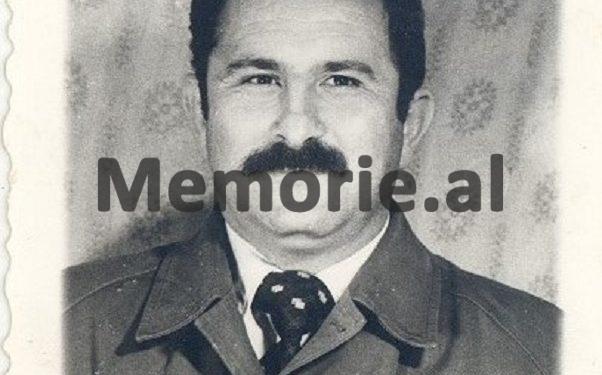
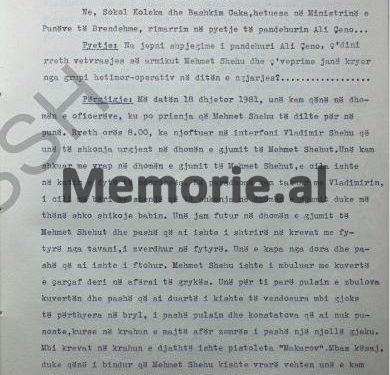
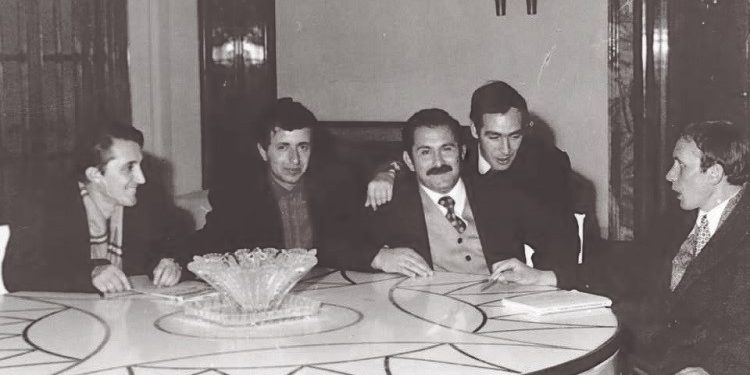
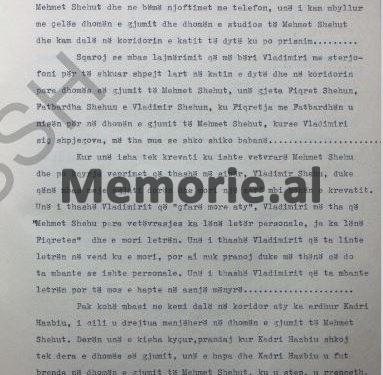
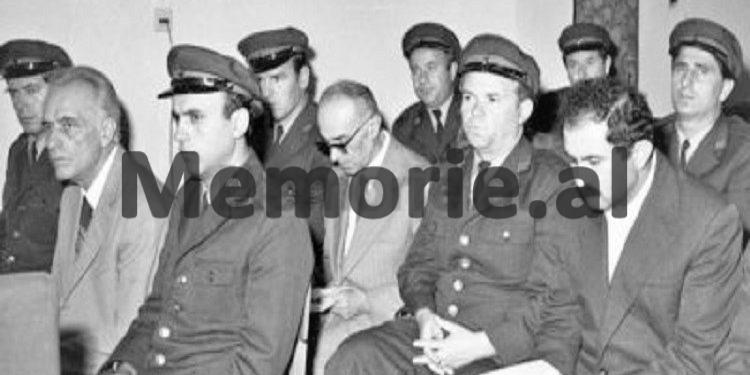
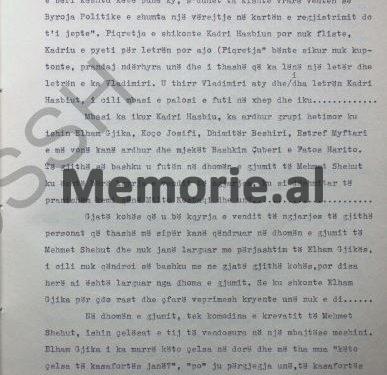
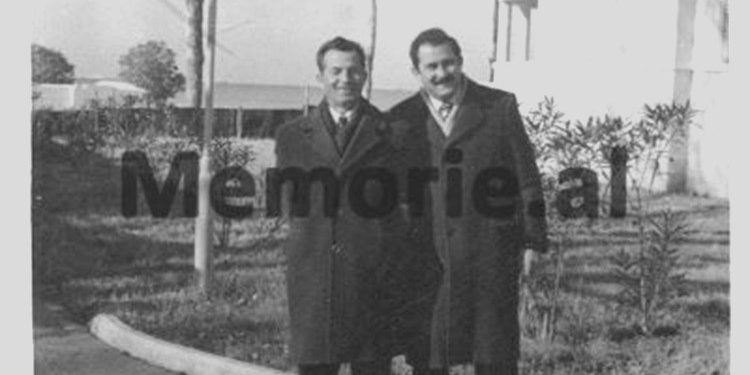
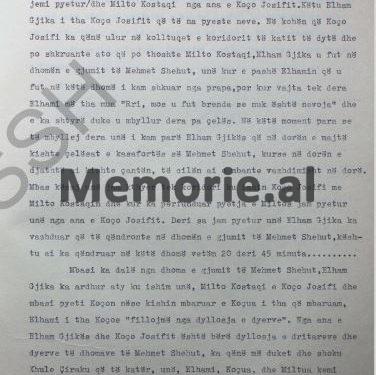
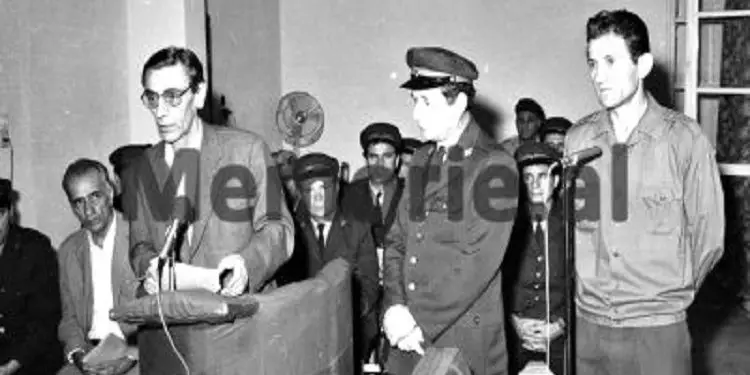
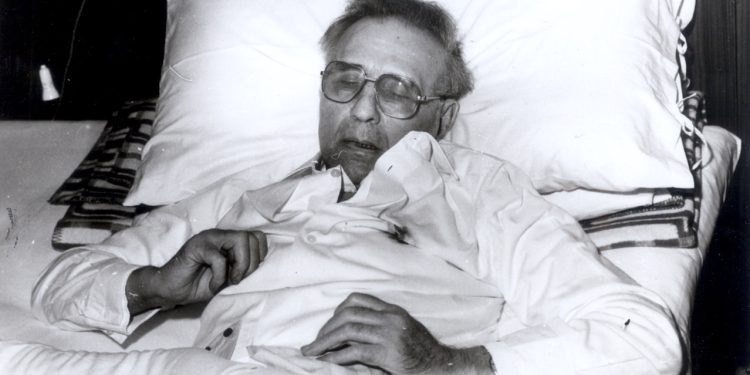
![“The ensemble, led by saxophonist M. Murthi, violinist M. Tare, [with] S. Reka on accordion and piano, [and] saxophonist S. Selmani, were…”/ The unknown history of the “Dajti” orchestra during the communist regime.](https://memorie.al/wp-content/uploads/2026/02/admin-ajax-3-350x250.jpg)
![“In an attempt to rescue one another, 10 workers were poisoned, but besides the brigadier, [another] 6 also died…”/ The secret document of June 11, 1979, is revealed, regarding the deaths of 6 employees at the Metallurgy Plant.](https://memorie.al/wp-content/uploads/2026/02/maxresdefault-350x250.jpg)




